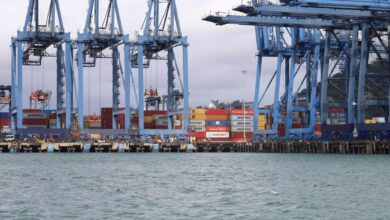Estádio das Chivas, o mais bonito na América Latina
O estádio Akron foi inaugurado em 30 de julho de 2010 e é um dos mais modernos em todo o mundo

O estádio onde se desempenha Club Deportivo Guadalajara, mais conhecido como o "Chivas" de Guadalajara é, possivelmente, o estádio mais bonito e moderno da América Latina (em competição é também a casa do BBVA Bancomer Monterrey). O gabinete chamado Estádio Akron por razões de patrocínio foi construído em julho de 2010, após 3 anos de trabalho e foi inaugurado com um amistoso entre o "Santo Bando" e Manchester United. Sua construção custou cerca de 111 milhões de dólares (2 bilhões de pesos mexicanos). 
Leer en español: Estadio de las Chivas, el más bonito de Latinoamérica
Este estádio é uma obra de arquitetura moderna. Sua fachada se parece com o Monte do Templo Olympus, como é coberta por grama, o que dá a idéia de uma montanha e no final é coberto por um teto branco que é chamado de "nuvem". De acordo com o clube, este "parece um vulcão que está rodeado por vegetação natural e parcialmente se funde com a paisagem". Foi construído pela firma de arquitectos e VFO desenhado por Jean Marie Massaud e Daniel Pouzet.
O palco pode acomodar 49.850 espectadores, o sexto na capacidade de todo o México. Em adição, no interior há 333 caixas para locação seja por temporada ou jogo. Cada um destes quartos tem cadeiras fora para assistir ao jogo, poltronas, TV com 42-polegadas, banheiro privativo, serviço de garçom e estacionamento privado, no mesmo lugar que os jogadores.
A área de imprensa tem tecnologia para transmissão de televisão e rádio. Esta área pode ser localizado até a 106 jornalistas por jogo. Em adição, existem 208 lugares destinados a pessoas com deficiência e um companheiro, um dos cenários mais inclusivas na região.
Tem 3 camarins (um para equipa da casa, um para os visitantes e um para a equipe de arbitragem). Um fato curioso dentro do local, clubhouse Chivas, não é uma capela dedicada à Virgem de Guadalupe, a padroeira do México.
Em adição, o estádio tem um museu onde os troféus conquistados pela instituição Tapatía, galhardetes equipes internacionais que jogaram contra, uniformes e recortes de jornais que contam a história do clube são. Ele também tem uma loja oficial, onde os fãs podem comprar uniformes e objetos alusivos à da equipe.
Amigável com o meio ambiente
O lugar também tem uma gestão adequada dos monopolizando água na época das chuvas para irrigar o campo. Tipo mictórios também usam "seca", que não usam água. Construção contribui para reduzir as emissões de CO2, porque eles evitar a produção de 50 toneladas de dióxido de carbono ao longo do seu tempo de vida (1 tonelada por ano). De acordo com o Chivas, áreas verdes em torno do estádio, totalizando mais de 90 mil metros quadrados, e cada metro quadrado de gramado pode produzir a mesma quantidade de oxigênio 8 árvores.
Sem dúvida, este gabinete de futebol será um dos cartões que usam o Estados Unidos, México e Canadá para ser a sede da Copa do Mundo 2026, que lutam com a união de Argentina e Uruguai como duas sedes e Marrocos.
Latin American Post | Santiago Gómez Hernández
Traduzido de "Estadio de las Chivas, el más bonito de Latinoamérica"





